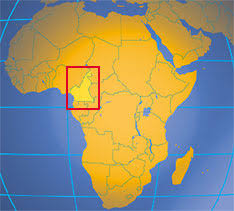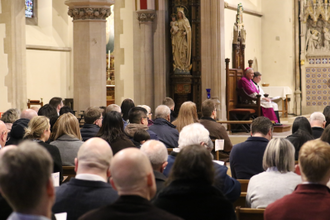Cameroonians flee to escape ethnic cleansing

In an echo of the Vietnam War, entire villages in English-speaking Cameroon are being torched by government soldiers to punish civilians suspected of sympathising with secessionist militias. The United Nations believes 43,000 people have recently crossed the border into neighbouring Nigeria, seeking refuge from the escalating conflict. The international community's calls for dialogue have been ignored by Cameroon's Francophone leader, President Paul Biya, who has been in power since 1982.
Until recently, diplomats have largely sidelined the deteriorating situation in Cameroon, believing it is an internal matter. The increasingly popular demand for secession is rooted in a contested referendum at independence in 1961. The English-speaking minority (20% of the population) was forced to choose between either joining Nigeria or the French-speaking Cameroon, rather than the desired third option, independence. The violence which came to a head in 2016 when the government of Cameroon imposed French-speaking teachers on English-speaking schools, and Francophone judges were appointed to dispense justice according to the French legal system in courts which hitherto had followed English common law.
The arrival of so many Cameroonian refugees in Nigeria has made it a regional problem. In early January, the Nigerian government responded by arresting 10 Anglophone Cameroonian politicians who were meeting in Abuja. Authorities initially denied they had detained Sisiku Ayuk Tabe, the secessionist leader, and his colleagues. However, the government eventually admitted they were holding the pro-independence politicians, accusing them of training a guerilla army, intending to cause trouble in the "peaceful country of Cameroon."
Nigerian commentator Adeola Fayehun immediately pointed out that Cameroon is far from peaceful, and that it was absurd to imply that the independence leaders were training an army. "Where are the weapons?" she asked. "Where is the evidence?"
Lawyers for the 10 secessionist leaders do not know where they are being held and have not been able to contact them. Amnesty has appealed to Nigeria not to hand them over to the Cameroonian authorities, fearing they will not receive fair treatment.
Cameroonian social media has featured distressing photographs of the charred remains of Appih, a 96-year-old woman burned to death in her home when government soldiers torched Kwakwa village in Meme county last week. Nearby villages of 6,000 people are now reported to have fewer than 50 inhabitants as people try to escape. The Anglophone Sun newspaper quoted one refugee saying, "We are not running away from so-called secessionists but from military harassment." Soldiers were reported to be doing "a brisk business" selling the possessions of people who have fled to Nigeria, leaving behind deserted villages.
On January 25th , militants based in Nigeria crossed the border, attacking a customs post, the latest in a series of often deadly guerrilla operations. Secessionists claim they are retaliating against the disproportionate forced used by Cameroonian authorities to put down peaceful demonstrations by Anglophone protesters which began in 2016. Amnesty has repeatedly condemned the shooting of unarmed civilians in the Anglophone region, including firing from helicopters hovering over churches as worshippers emerge from Mass.
Seeking a peaceful solution, Anglophone Catholic leaders have urged President Biya to allow a genuine dialogue aimed at devolving power to English-speaking areas under a federal system. Their pleas have been ignored by President Biya: he has the support of the international community because of Cameroon's role in fighting Islamist Boko Haram militias in the far north of the country. Biya is also aided by the fractured opposition, seemingly unable to make common cause with democracy activists in the Francophone community.
Meanwhile, the Cameroonian Diaspora has appealed to the UK government to support their fellow English speakers in asserting their rights as a persecuted minority in the majority Francophone West African nation. However, the Foreign Office stands by the result of the 1961 referendum. Campaigners point out that their rights under the post-independence constitution were soon eroded by the French-speaking majority. Currently only one member of the 36-person cabinet is from the English-speaking regions in the south west and north west.
There are no grounds to suppose the militant pro-independence forces will crumble, despite increasingly heavy-handed government tactics. Anglophone Cameroonians interviewed for this article say they are prepared to sacrifice everything they have in this once-in-a-generation chance to gain independence from Francophone Cameroon. The disproportionate government response appears to be feeding the polarization of the population. The international community may not wish to be involved, but it seems inevitable that Cameroon's troubled post-colonial legacy will have to be confronted sooner or later.


















